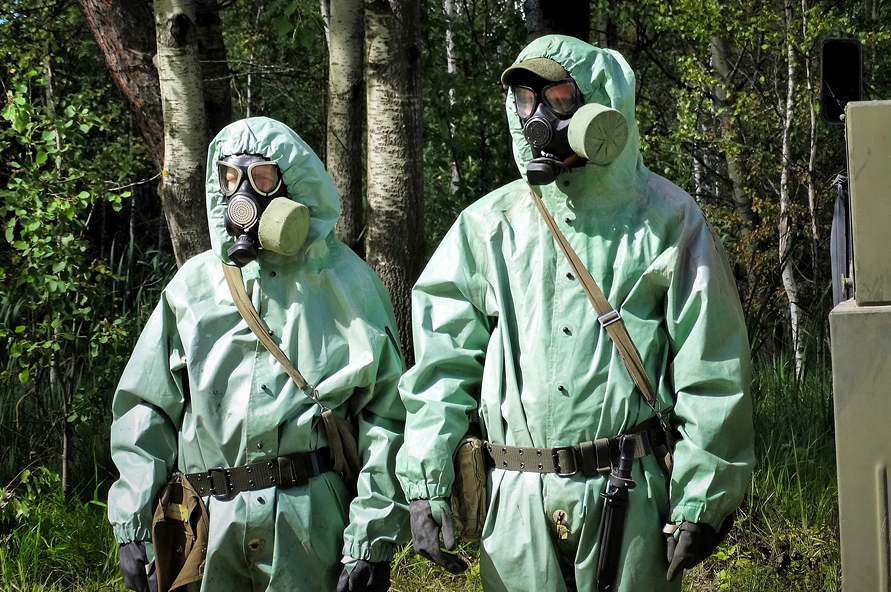ISO 22174 General PCR Method Requirements Validation Testing
The ISO 22174 standard defines requirements for general polymerase chain reaction (PCR) methods, which are essential in the field of molecular biology. This standard is particularly crucial in ensuring accurate and reliable detection of nucleic acids, making it indispensable for testing protocols involving nuclear, biological, and chemical agents.
In military applications, such as NBC testing, the reliability of PCR methods can significantly impact decision-making processes that could potentially save lives or ensure mission success. The validation process adheres to strict international guidelines set forth by ISO 22174 to ensure that any method used meets stringent quality criteria. This includes ensuring the accuracy and precision of results under various conditions.
The testing involves rigorous validation steps such as linearity, specificity, detection limit, and robustness checks. These tests are conducted using real-world samples that simulate potential threats in military environments. Compliance with ISO 22174 ensures not only technical proficiency but also aligns the laboratory's practices with global standards, enhancing trust within the defense sector.
The importance of this service cannot be overstated, especially considering the critical nature of rapid and accurate detection systems in NBC scenarios. By adhering to these stringent validation protocols, laboratories can provide reliable data that informs strategic decisions and enhances operational readiness.
Why It Matters
The reliability of PCR methods is paramount in military testing, particularly when dealing with nuclear, biological, and chemical agents. The stakes are high; errors or false positives could lead to significant consequences including unnecessary panic or missed threats. ISO 22174 ensures that the methods used meet the highest standards, thereby enhancing confidence in the results.
The standard covers various aspects of PCR method validation, which is critical for ensuring consistency and accuracy across different testing environments. This is especially important given the diverse conditions under which military operations may occur. By adhering to these guidelines, laboratories can provide consistent data that can be relied upon during high-stakes scenarios.
Moreover, compliance with ISO 22174 helps establish a benchmark for quality and reliability, which is essential in maintaining trust within the defense sector. This not only enhances internal operations but also facilitates collaboration with international partners who rely on comparable standards.
Scope and Methodology
The validation of PCR methods according to ISO 22174 involves several key steps:
| Step | Description |
|---|---|
| 1. Linearity Check | Ensures the method can accurately quantify nucleic acid over a wide range of concentrations. |
| 2. Specificity Check | Determines whether the method correctly identifies target sequences without cross-reactivity to non-target sequences. |
| 3. Detection Limit Test | Evaluates the lowest concentration of target sequence that can be reliably detected by the method. |
| 4. Robustness Check | Tests how well the method performs under various conditions, including temperature variations and changes in reagent concentrations. |
These steps ensure that the PCR method is robust, accurate, and precise enough to meet the demands of military testing. The use of real-world samples simulating potential threats further enhances the practical relevance of these tests.
Benefits
The implementation of ISO 22174 General PCR Method Requirements Validation Testing offers numerous benefits, particularly in enhancing reliability and accuracy:
- Enhanced Reliability: By adhering to international standards, laboratories can ensure that their methods are consistently reliable across different testing conditions.
- Increased Accuracy: The validation process ensures that the PCR method accurately detects nucleic acids without false positives or negatives.
- Better Robustness: Testing under various conditions ensures that the method remains effective even in challenging environments.
- Improved Confidence: Compliance with ISO 22174 builds trust within the defense sector, enhancing operational readiness and decision-making.
These benefits are crucial for maintaining high standards of quality and reliability, which is essential in military applications where precision can be a matter of life or death.





